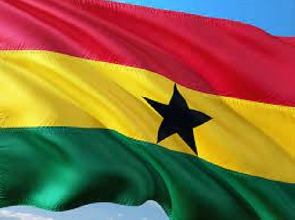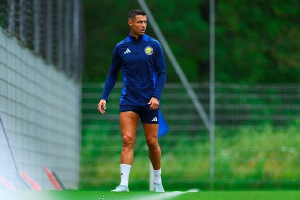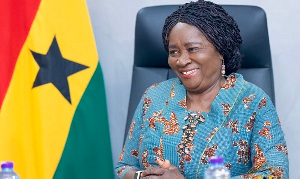I would like to share my thoughts on changing Ghana's governance architecture in order to provide a more effective path to development and accountable governance. This would mean amending the 1992 Constitution. I welcome public debate and comments.
Restructure the Division of the State of Ghana
The current divisions of Ghana (Regions and Districts) were basically set up by the colonialists for their own purpose, with not much regard for the natural divisions already in place. After independence, we continued to create more regions and districts mainly for political expediency rather than for effective local government.
However, there were natural divisions already in place that were in line with the history, culture and natural boundaries of the areas, i.e. the traditional states and this should have been used.
Therefore, the true and natural first-level division of Ghana that is in line with the Ghanaian experience is the traditional states that exist within.
I propose the following for consideration:
1. 1st Level Division of Ghana shall be called a District and should represent each Traditional State (or a subdivision of larger ones). There shall be no more than 100 districts representing the various traditional states in the country.
2. 2nd Level Division of Ghana shall be called the Municipality; each town, village or city shall become a Municipality of Ghana.
3. MMDA shall be restructured to fit into the above definition of district.
4. There shall be no Regions.
5. Certain taxes shall be dedicated to support each level of government – National, District, and Municipality. (e.g. in the US, Income tax goes to the National level (Federal); Sales tax goes to 1st level division (State) and Property tax goes to the municipal level.)
There must be a guaranteed source of funding for development to the districts and municipalities from public funds; DCEs and Mayors must also work to generate their own revenues for development.
Curb Excessive Powers of the President of Ghana and the Executive Branch
The ultimate authority of the state should rest with an entity that has the interest of Ghana at its heart at all times. The current situation where the president is the head of state and therefore carries the ultimate authority of the state, in addition to being the head of government, is untenable.
The president, as we have seen over the last thirty years, owes allegiance foremost to his government and political party, rather than to the country. Ghana is currently a highly centralized state, all centered around the president, and this invariably leads to corruption and inefficiency as we can see.
Therefore, we must take away the position of head of state from the president to a more befitting entity. This entity should be the Paramount Chiefs or Omanhene, whom we have known from time immemorial to owe true allegiance to the people and the land. Indeed, they were the heads of state before the colonialists arrived.
I propose the following for consideration:
- A council of the National House of Chiefs, to be known as the Council of Kings, shall collectively be the Head of State of Ghana, with mainly oversight and ceremonial functions. The Council shall select its own Chair.
- The Council of Kings shall comprise about twelve eminent Kings from the various traditional states in Ghana, selected to ensure ethnic balance. There shall be permanent members from larger traditional States such as the Asantehene and the Yaa-Naa, and non-permanent rotational members from the smaller traditional states. (Similar to the United Nations Security Council).
- The president shall be the head of government and the executive functions of the state shall rest with the president.
- The Council of Kings shall take an active but neutral role in governance, especially to counsel and control excessive behavior of the executive branch, including the president.
- When a presidential candidate wins election, the Council of Kings shall invite the winner to form a government.
- Parliament’s power to impeach the president and other executive appointees shall be transferred to the Council of Kings. The Council and Parliament shall set up the rules.
- Where the president and vice president are permanently unable to perform duties, the Council of Kings shall appoint a caretaker president to run national elections.
- No more Appointments of DCEs by the president. The DCE shall be hired by the District Assembly, the Omanhene of the area and the National Development Planning Commission through an open competitive application process.
- As Chief Executive, the DCE’s job is to develop the district within a national framework as defined by the National Development Plan. The DCE shall be hired or fired based on performance rating by the National Development Planning Commission.
- The DCE shall report to the Omanhene of the area, be an ex-officio member of his cabinet, and shall be accountable to the District Assembly.
- Each municipality shall have an executive called Mayor or Town/Village Manager. The executive shall be hired by the Chief of the municipality, the Town Development Committee, and the National Development Planning Commission through an open competitive application process.
- The Mayor shall report to the Chief of the municipality and be an ex-officio member of his cabinet and accountable to the Town Development Committee.
- As Chief Executive, the Mayor’s job is to develop the municipality within a national framework as defined by the National Development Plan. The Mayor shall be hired or fired based on performance rating by the National Development Planning Commission.
- No more Appointment of Chairmen and Members of Independent Constitutional Bodies (ICB) by the president. The Council of Kings shall appoint the Boards of these entities with approval from Parliament. Then, the Boards shall appoint the officers through an open competitive application process in consultation with the Public Services Commission.
- The president shall appoint the Boards of State Companies and Agencies with approval from Parliament. Automatic membership from other entities shall remain. Then, the Boards shall appoint the officers through an open competitive application process in consultation with the Public Services Commission.
- Cap the number of Ministers & Deputy Ministers appointed by the president to a total of 38 and Presidential Staffers to 100.
- Where the president makes an appointment to a body, Parliament shall limit the cap to the maximum number rather than the minimum number.
- Scrap the Council of State. The president shall appoint his own advisors as part of Presidential Staffers.
- The president shall consult with the Council of Kings, where such consultation was previously required of the Council of State.
- Scrap the president's appointment of 1/3 of District Assemblies members. Additional members should be selected by elected members, the Omanhene of the area and the National Development Planning Commission.
- The president and every public officer of state shall pay tax.
- Decouple the Attorney General and Minister of Justice. Whereas the former will be independent and concentrate on prosecutions, the latter will be part of the president’s Cabinet and concentrate on the development and accessibility of the law and justice.
Strengthen the Legislature
The 1992 Ghanaian Constitution has created a hybrid of the Presidential and Parliamentary systems. Unfortunately, this novel idea has disrupted some basic principles in governance - Separation of Powers and Checks and Balances. Best practice in governance demands that government architecture should be setup such that too much power is not centered in one entity and the various entities check and balance each other.
The Presidential and Parliamentary systems, as practiced in the USA and UK, each have these best practices in place, such as the power of the purse, confidence vote, etc. In the UK for instance, the majority in parliament runs the executive, so you will see the Prime Minister and Ministers as MPs. However, this arrangement can easily collapse through a confidence vote. And this has proved very successful in being parliament’s way of checking executive authority in the UK.
In Ghana’s experiment, however, the president’s ability to appoint executive officials from parliament undermines good governance. The Executive, being a separate independent body, (unlike where it is part of parliament in the UK) should have no business appointing members of the legislature into executive positions. From our experience, this has become a dangling fruit to keep MPs in line and lessen their ability to check executive actions.
Also, the executive’s ability to create more regions and districts has become nothing more than Gerrymandering. And a censure vote has proved to have no power to remove even a minister.
Ghana's system is basically the Presidential system, and as such, the executive should remain separate and independent, and not be mixed with the legislature.
I propose the following for consideration-
- No more than 100 MPs.
- Each district shall elect one MP.
- No more Ministers and deputies appointed from Parliament.
- MPs can take an independent stance from their political parties and it will be illegal for the party to sanction them during their tenure.
- The core of an MP’s job is legislation and oversight, and MPs must compete on that basis. MPs shall not engage in direct official development activities in their districts or compete on that basis. That is the job of DCEs and mayors.
- MPs shall regularly report to their districts on how they have participated in making laws of Ghana and other functions of Parliament (particularly impacting their district).
- No tolerance for MPs absenteeism; Strict rules shall apply including automatic loss of seat.
- Strict rules shall apply to MPs participating in out-of-parliament for-profit and not-for-profit organizations. They shall not be appointed to boards or executive positions of government or private organizations.
Strengthen Good Governance
I propose the following additional measures for consideration:
- Set up an Independent National Development Planning Commission. The initial Board shall be set up by the Council of Kings with approval from parliament. Then, the Boards shall appoint the officers through an open competitive application process in consultation with the Public Services Commission.
- The Independent National Development Planning Commission shall set up a binding National Development Plan through national consultation with all stakeholders and experts and approval by the Council of Kings and Parliament.
- Require Political Parties to design their manifestos to be in accordance with the national plan, and obtain approval from the Independent National Development Planning Commission before use for campaigns.
- The National Development Planning Commission shall regularly report to stakeholders on the performance of all executive officers in implementing the National Development Plan. The appointing authorities shall act accordingly, and where there is serious default, replace the executive.
- Scrap Ex-Gratia Awards or any similar special pensions for political work. Every Ghanaian shall contribute to the regular national pension fund, whether in or out of public or civil service. And they shall receive benefits only at the due time.
- ICB shall be given subpoena powers, can initiate investigation into any related matter and can enforce decisions directly through the High Court. Doesn’t need the Attorney General’s department.
- Where the ICB decision is upheld in the court, the aggrieved party may appeal at the Supreme Court. Adverse decision by the courts is grounds for removal from office for any executive, including the president, by the appointing authority.
- Consolidate ICBs to ensure efficiency and avoid duplication. Budgets of ICBs to be charged directly to the Consolidated Fund upon approval by parliament.
- The Electoral Commission shall have an organ to organize mandatory presidential debates. Presidential candidates shall undertake to participate in presidential debates when invited, and refusal to participate shall void the candidature.
- The president shall undertake regular meet-the-people press engagements during the term. Parliament shall set rules and details.
Opinions of Thursday, 16 February 2023
Columnist: Kofi Adu















